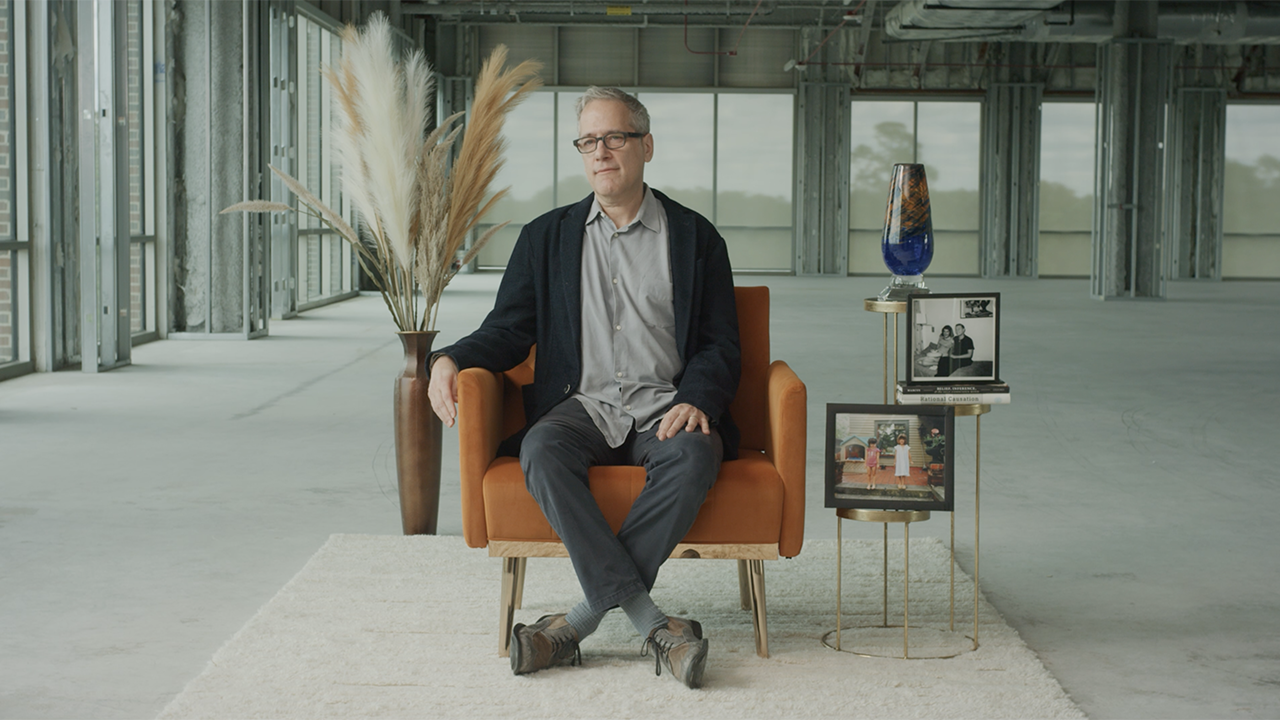content body

This fall, Eric Marcus was named the recipient of the university’s Creative Research and Scholarship Award for Fine Arts, Liberal Arts, Architecture and Design, Business, Social and Human Sciences.
From an early age, the vast nature and complexity of philosophy drew Eric Marcus to the discipline. Seeking a deeper understanding of the human agency and rational causation, Marcus has emerged as one of the most influential scholars in the field, amassing a steady and impressive portfolio of research and thought leadership.
This fall, Marcus was named the recipient of the university’s Creative Research and Scholarship Award for Fine Arts, Liberal Arts, Architecture and Design, Business, Social and Human Sciences. Presented annually, the award recognizes faculty members who have distinguished themselves through creative contributions, scholarly works and research. His early passion to understand the world and our place in it has fueled an academic career spanning more than two decades and significant contributions to the philosophy of mind and action, epistemology, metaphysics, aesthetics and the philosophy of language.
A noted scholar, Marcus’ citation rate remains in the top 2% for his field, including a citation rate within the top 1% in the four major areas of philosophical scholarship with which his work intersects. However, it is his primary research area, the study of rationality, where Marcus has no peer.
His two books, “Rational Causation” (Harvard University Press, 2012) and “Belief, Inference, and the Self-Conscious Mind” (Oxford University Press, 2021) are seminal works that have emerged as required reading for philosophy students at institutions that include Harvard University, the University of Chicago, and the University of Pittsburgh, where he earned his doctoral degree.
James Shaw, associate professor and Chair of the Department of Philosophy at the University of Pittsburgh and one of Marcus’ nominators, commented on his success in philosophical research and his ability to craft provocative and timely scholarly works.
“Professor Marcus has just produced a state-of-the-art book… that has rapidly emerged as giving the view to beat,” Shaw said. It has set the agenda for research in this domain for at least the next decade. To say the book is making waves would be an understatement.”
In 2020, Marcus and Auburn colleague Keren Gorodeisky received the prestigious Arthur Danto/American Society for Aesthetics Prize for their paper “Aesthetic Rationality.” Published in the “Journal of Philosophy,” the paper explores the nature of aesthetic judgments, issues concerning beauty qualities, and how people make decisions around experiences like music, art, or nature, broadly connecting them to philosophical issues.
With nine specialists in the field and a significant body of research published in top journals, Auburn’s aesthetics program has become one of the world’s best, with six faculty ranking in the top 3% nationally in number of citations in aesthetics during the past five years, and three faculty in the top 1%. In the past year alone, Marcus, Gorodeisky, and Nils-Hennes Stear have each won major awards for their work in the field.
A celebrated teacher who finds joy in his students’ progress and their engagement with philosophical concepts, Marcus’ courses range from the introductory to the philosophy of law, consistently generating high student evaluations.
“My most memorable teaching experiences at Auburn have come during class discussions when an idea or a problem has really taken hold of the students,” Marcus says. “During those moments, I can see them wrestling in their own mind with an idea. It is wonderful to behold.”
Since joining the Auburn faculty in 2000, Marcus has found an academic home on the plains that has fueled an extraordinary level of productivity, a community for which he has the utmost gratitude.
“The philosophy department at Auburn has been the ideal setting to thrive as an academic,” says Marcus.
“There are at least a dozen people with whom I can have productive, fascinating and friendly philosophical dialogues. The work my colleagues do has itself deeply affected the direction of my own work. And we have all benefitted from having one excellent chair after another.”
His colleagues, in turn, value Marcus as a collaborator and appreciate his extensive contributions to the field. Michael Watkins, professor and chair of the philosophy department at Auburn, is especially proud of Marcus’ achievements.
“Eric has not just moved the conversation in philosophy, a task that is difficult on its own; his work is now part of the cannon,” said Watkins. “It is required reading for any philosopher working on the topic. I think it highly unlikely that anyone could deserve this award more than Eric.
Eric Marcus was honored at the 17th annual Faculty Awards Ceremony on November 9 at the Brown-Kopel Engineering Student Achievement Center. More information about the award can be found on the Faculty Awards website.





